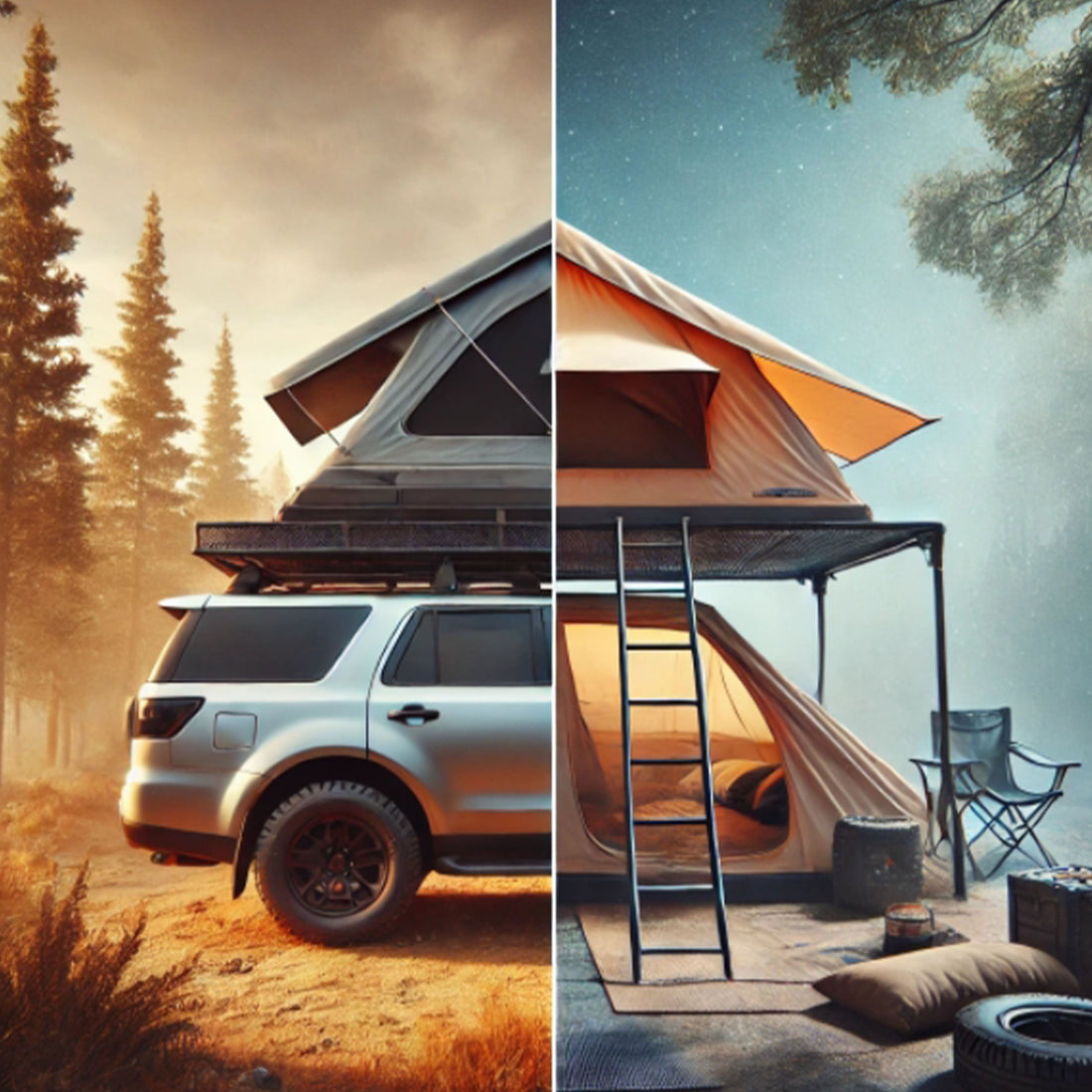Weighing the Pros and Cons
Rooftop tents have revolutionized the way we camp, offering a convenient and comfortable way to enjoy the outdoors. However, when it comes to choosing between hardshell and softshell rooftop tents, many campers face a dilemma. Each type has its own advantages and disadvantages, catering to different preferences and needs. Let’s dive into the pros and cons of each option to help you make an informed decision.
Hardshell Rooftop Tents
Advantages:
Durability: Hardshell tents are typically made from robust materials like ASA/ABS plastic with a Line-X coating or full aluminum construction. They offer excellent durability, making them ideal for withstanding harsh weather conditions and wear over time.
Quick Setup: One of the main benefits of hardshell tents is the fast and easy setup process. Most hardshell tents use simple mechanisms that allow them to be opened and closed within minutes, making them perfect for spontaneous camping trips or overnight stays.
Aerodynamic Design: Hardshell tents usually feature sleek, aerodynamic designs that help improve fuel efficiency and reduce wind noise while driving.
Extra Gear Storage: Many hardshell tents come equipped with accessory channels and roof rack options to carry extra toys and gear, adding versatility for adventurers.
Disadvantages:
Weight: While the sturdy construction is a boon for outdoor enthusiasts, hardshell tents tend to be heavier than softshell tents. This means that installation and removal may require two people to complete.
Cost: Hardshell tents generally come with a higher price tag compared to softshell tents, which might be a deterrent for budget-conscious campers.

Softshell Rooftop Tents
Advantages:
Lightweight: Softshell tents are typically lighter than their hardshell counterparts, making them easier to install and remove from the roof of your vehicle.
Affordability: Softshell tents are often more affordable than hardshell options, making them an economical choice for campers who don’t want to spend too much.
Disadvantages:
Longer Setup Time: Setting up a softshell tent can take longer than a hardshell tent, as it often involves unfolding fabric and securing poles.
Weather Resistance: While many softshell tents offer decent weather protection, they may not be as durable or weatherproof as hardshell tents, especially in extreme conditions.
Maintenance: Over time, softshell tents may require more upkeep, such as regular cleaning and waterproofing, to ensure longevity and performance.

How to Make the Right Choice?
Camping Frequency: If you camp frequently and prioritize quick and easy setup, a hardshell tent might be the better choice. On the other hand, if you camp less often and are looking for a more economical option, a softshell tent would be more suitable.
Camping Location and Conditions: The sturdy construction of hardshell tents makes them ideal for harsh weather conditions such as snow and wind, making them a great option for winter or extreme camping. Softshell tents, however, are better suited for warmer climates or summer camping trips.
Budget: Hardshell tents tend to be more expensive and are a better option for campers planning a long-term investment, while softshell tents are more budget-friendly, making them a good choice for those looking to save money.
At Bamatent, we offer a wide selection of rooftop tents to cater to different types of campers. Whether you’re seeking the ultimate outdoor adventure or a comfortable, relaxed camping experience, we have the perfect tent for you. By carefully weighing the pros and cons of hardshell and softshell tents, you can make a wise decision and enjoy every camping adventure to the fullest.

